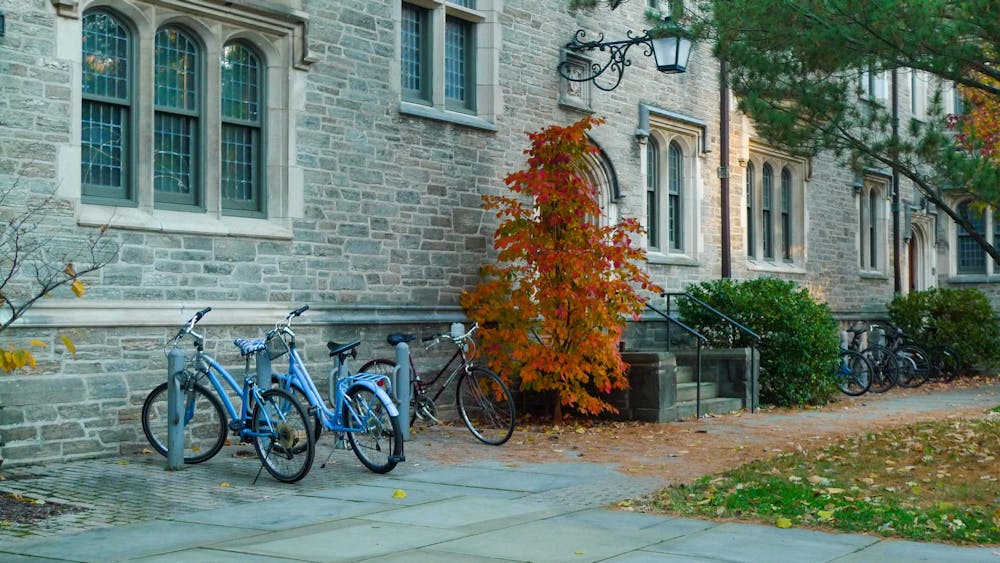In her Oct. 22 op-ed, Julianna Lee ’25 argued that male-only spaces could better Princeton’s campus by building “encouragement, empowerment, and friendship for men.” Columnist Ava Johnson ’27 responded on Nov. 4, contending that male-only spaces fail to address men’s problems and “[run] the risk of breeding misogyny and bullying.”
These opinions come at a time when Donald Trump made surprising inroads with young male voters. While Democrats have support from young voters across genders, the 2024 election saw Gen-Z men swing 15 percentage points to the right from the 2022 election cycle. And as Richard Reeves — the president of the American Institute for Boys and Men — is quoted as saying in a recent Guardian article, the temptation after the election to do what Johnson’s piece does — “double down on attacks on patriarchy and toxic masculinity” — could be “disastrous.”
We should ask better questions than “What do male-dominated spaces get wrong?” Johnson’s piece highlights how the answer to this question is already painfully obvious. Instead, we should ask ourselves: How can we cultivate healthy, nurturing male-centered spaces so young men don’t take refuge in the misogynistic, hyper-masculine, far-right milieu of Trump and Andrew Tate?
I want to be clear: Female solidarity is essential given the severity of obstacles women have faced and continue to face, especially in light of regressive cultural and legal developments. We’re also not far removed from the time when universities like Princeton were exclusively available to men. Given the severity of historical and current challenges facing women, a discussion of male-focused spaces might appear to distract from the significant and pressing challenges facing women. Additionally, it might be difficult to envision how a male-focused space at Princeton could enable different conversations than what’s typically found in Xbox chats or machismo locker room banter.
But if the 2024 election has shown us anything, it’s that writing off male-focused spaces as ill-advised havens for chauvinism robs men of a vital outlet for self-education and improvement and pushes them to seek advice from actual chauvinists who seek to weaponize their masculinity. To shape men who will be loving fathers, brothers, and sons capable of collaborating with women to produce a more equitable and just society, we need to imagine better male-focused spaces.
Male-focused spaces at Princeton should flourish alongside female spaces, which provide women with invaluable networks in traditionally male-dominated academic and professional environments. It’s also reductive to assume that these male-focused spaces will devolve into misogyny and bullying. Yes, this dynamic can emerge when our paradigm of male-only spaces is limited to, as Johnson cites, the fraternity house. However, with Princeton’s reputation and funding, a student organization committed to building a positive community among men could be dynamic and multifaceted. The Princeton Black Men’s Association exists as just one iteration of this kind of group.
But the fact that nearly 80 percent of suicides today are committed by men suggests that more Princeton students could benefit from spaces to connect with other men and discuss issues of masculinity. The National Institutes of Health has tested multiple kinds of male-focused support groups and found that men reported feeling less isolated after attending these sessions. True, existing male-only spaces like sports teams and fraternities might help some men feel less alone. But these spaces do not generally induce men to think critically about their masculinity.
In high school, dynamic speakers and groups — such as Matt Bellace and The Mask You Live In — came to my all-boys school to discuss everything from the limitations of traditional masculinity to the breaking of racial barriers in sports, confronting the male suicide rate, and discussing how to prevent substance abuse and addiction. By hosting a wide variety of speakers and leading thoughtful, small-group discussions, my school created a positive environment that showed boys as young as five the full range of how men can be loving figures for positive change in their communities.

At Princeton, male-focused student organizations could organize discussions with experts on the cutting edge of research into masculinity and mental health, host weekly dinners to foster connection among male students, and arrange group volunteering experiences. These groups could also implement a mentorship program: for example, upperclassmen could meet informally with underclassmen to trade life experiences and advice. These elements would create a space for conversations that help men feel less alone, equip them with tools to understand themselves better, and foster nourishing life-long relationships.
This kind of male-centered programming could improve gender relations more broadly. For instance, another one of Lee’s columns highlighted how women report disproportionately negative impacts from casual sex. Women shouldn’t be solely responsible for addressing this nor for other problematic gendered dynamics. A male-focused space could incorporate programming on managing and fostering healthy relationships in high-stress college environments, promoting a healthier culture surrounding sex and intimacy for everyone.
The lack of avenues for men to talk about masculinity is not an excuse for problematic behavior. But when discussing the challenges facing men involves pathologizing them and blaming their struggles on their own toxic masculinity, we suggest that masculinity is inherently problematic and cannot be expressed in a healthy way.
In the absence of positive male-focused spaces where men can speak candidly about their challenges and learn from role models, men will continue to retreat from these conversations to places where they feel seen: to Trump and Tate and other figures seeking to weaponize masculinity.

Nick Manetas is a sophomore and prospective English major from Richmond, Va. He can be reached by email at nm1629[at]princeton.edu.








